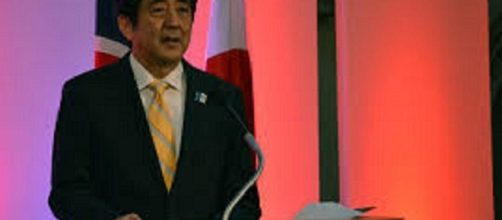Kim Jong-un’s regime was spotted to move missiles from a rocket facility in Pyongyang, Reuters reported. This has led to the speculation that North Korea was gearing up for more provocative actions after the communist regime threatened to strike the US mainland with a nuclear missile. This news alarmed the Japanese government, which immediately warned its people for looming missile launches and nuclear bomb test.
Japan gets extra precaution
Itsunori Onodera, Japan’s defense minister, advised caution because the start of the lower house election campaigns in Japan would coincide with one of North Korea’s major anniversaries, Express reported.
In the past, important events in the communist regime were marked with massive nuclear weapons tests. Just last year, during its founding anniversary, North Korea conducted its fifth nuclear test.
In addition, the defense minister was worried that the North might stage another H-bomb test on October 10 to mark the foundation of the North Korean communist party. The anniversary would be on the same date with the campaigns for parliament’s lower house election after Prime Minister Abe dissolved the chamber.
After North Korea conducted its sixth and most powerful nuclear test, the tensions over the Korean peninsula continued to escalate. In return, the UN General Council approved tougher sanctions against Kim Jong-un’s regime.
However, Kim appeared undaunted and even threatened for an H-bomb test on the Pacific Ocean.
Averting a military standoff
Chung Eui-Yong, the national adviser of South Korea, echoed a similar warning. Just like Onodera, Eui-Yong was convinced that Kim’s regime would definitely stage some kind of nuclear test come October 10. He further said that North Korea was expected to act around October 10 and 18. During these times, a meeting with President Moon Jae-in will be held, he added without going into details.
Moreover, in spite of the pressure by the international community, Kim’s regime still successively launched ballistic missiles this year. Two of these missiles dangerously flew across Japanese territory.
Meanwhile, its long-time ally and main trading partner, China, called on the two leaders to calm down. Both the United States and North Korea were urged to engage in a mediated dialogue, which China believed to be the only means to end the crisis on the Korean peninsula.
On the other hand, Japan appeared to support the more robust approach of the White House. Prime Minister Shinzo Abe called for additional tougher pressures against the communist regime to force Kim Jong-un to abandon his nuclear and missile programs.
In addition, Abe refuted that an election would only cause a political vacuum during a time of escalating tensions. He urged the nation not to give in to the threats of Kim’s regime. “By gaining a mandate from the people with this election, I will forge ahead with strong diplomacy,” Abe concluded.


